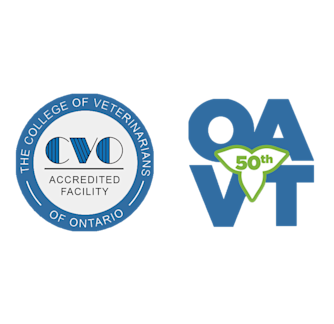Poop is a Food Group
Pet Wellness

Although you won’t find it in the recently released New Canadian Food Guide, poop is indeed a food group in Nature. It will be of no surprise to you, that although natural, it is the cause for illness for our pets and in turn the humans that share their lives. At Abbotsford Animal Hospital, we encounter illnesses related to both direct and indirect feces ingestion almost every day. In the hope to help keep both the bipeds and quadrupeds in your home safe I thought I would share some important and interesting information on Fox Tapeworm.
Of all the possible illnesses to discuss today, I will focus on one that has seen notable airtime on local television broadcasts in recent weeks - Fox Tapeworm, scientifically called Echinococcus multilocularis. This parasite was generally accepted to not be found in this region but in a recent study it was found shockingly that 23% of wild canids in Southern Ontario were found to be shedding this parasite in their feces. This was quite a shock and scientists are still working at determining what the risk of infection is in our area. While scientists work on this, what we do know is that a dog that has access to outdoor areas with foxes, coyotes, wild dogs or wolves may be at risk of exposure to infected feces. I say “dogs” here, and not “cats and dogs” as cats have a far more refined palate than dogs.
Here is how the problem develops:
An infected canine sheds tapeworm eggs in their feces. When another canine or accidentally a human ingests the eggs they develop Alveolar echinococcus (AE). This is where the tapeworm causes tumour-like parasitic cysts to form in their body. Although the liver is a common site these organ destroying cysts can develop elsewhere. Unfortunately, should these develop they are very difficult to treat and can cause severe organ damage in either a dog or a human.
At Abbotsford Animal Hospital we are here to protect and care for the health of animals and their human companions. As treating for tapeworms is not usually part of routine deworming in Ontario, it may be recommended to regularly deworm dogs deemed at risk with a medication that is effective against tapeworms. Praziquantel is the medication of choice. Dr. Scott Weese, a professor at the University of Guelph is tracking the parasite and he presently deworms his own dog monthly as he feels he lives in a higher risk area and his pet has a “taste” for everything. If your dog may be at risk of exposure to canine feces we need to discuss if this type of deworming is recommended and if so how often.
Stay tuned for more information regarding this exciting new food group.
Abbotsford Animal Hospital - Caring for Pets for People in York Region, Aurora, Newmarket, King City, Richmond Hill and the GTA.
Dr. Derek Clark
Dr. Clark joined Abbotsford in 2000, becoming a partner in 2003. He has special interest in cancer treatment, internal medicine, and pain management.

